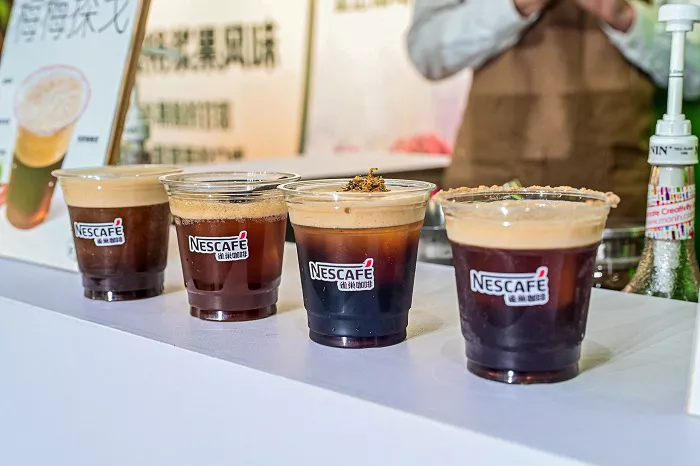Nescafé is one of the most recognizable coffee brands in the world. It is known for its instant coffee products, which have become a staple in many households. But who owns Nescafé? To answer this question, we need to delve into the history of the brand and its parent company.
The Origins of Nescafé
Nescafé was first introduced in 1938 by the Swiss company Nestlé. The brand was created as a solution to the surplus coffee beans that Brazil had in the 1930s. Nestlé was approached by the Brazilian government to find a way to preserve these beans. The result was the development of instant coffee, which could be easily prepared by just adding hot water.
Nestlé: The Parent Company
Nestlé, the company behind Nescafé, is a multinational food and beverage conglomerate headquartered in Vevey, Switzerland. Founded in 1866 by Henri Nestlé, the company has grown to become one of the largest food companies in the world. Nestlé operates in nearly every country and offers a wide range of products, including baby food, bottled water, cereals, and, of course, coffee.
Nestlé’s Global Reach
Nestlé’s extensive portfolio includes some of the most well-known brands in the food and beverage industry. In addition to Nescafé, Nestlé owns brands like Maggi, KitKat, Nespresso, and Purina. The company’s global presence allows it to distribute its products to a wide audience, making Nescafé a household name in many countries.
The Evolution of Nescafé
Since its inception, Nescafé has undergone significant changes and innovations. The brand has expanded its product line to include various types of instant coffee, such as Nescafé Classic, Nescafé Gold, and Nescafé Dolce Gusto. Each product caters to different consumer preferences, offering a range of flavors and strengths.
Nescafé’s Product Range
Nescafé Classic: The original instant coffee, known for its rich and robust flavor.
Nescafé Gold: A premium instant coffee made from high-quality Arabica beans.
Nescafé Dolce Gusto: A range of coffee machines and capsules that allow consumers to make barista-style coffee at home.
Nescafé’s Market Position
Nescafé holds a significant share of the global coffee market. The brand’s success can be attributed to its ability to adapt to changing consumer preferences and its commitment to quality. Nescafé has also invested heavily in marketing and advertising, ensuring that it remains a top-of-mind choice for coffee lovers.
Nescafé’s Marketing Strategies
Nescafé has employed various marketing strategies to maintain its market position. These include celebrity endorsements, social media campaigns, and partnerships with other brands. The brand has also focused on sustainability, promoting eco-friendly practices in coffee production.
Nestlé’s Commitment to Sustainability
As the owner of Nescafé, Nestlé has made significant efforts to promote sustainability in the coffee industry. The company has implemented various initiatives to ensure that its coffee is sourced responsibly and that farmers are supported.
The Nescafé Plan
The Nescafé Plan is one of Nestlé’s key sustainability initiatives. Launched in 2010, the plan aims to improve the quality and sustainability of coffee production. It focuses on three main areas:
Better Farming: Providing farmers with training and resources to improve their farming practices.
Better Coffee: Ensuring that the coffee beans used in Nescafé products are of the highest quality.
Better Lives: Supporting coffee-growing communities by improving their living conditions and economic opportunities.
The Future of Nescafé
Looking ahead, Nescafé is poised to continue its growth and innovation in the coffee industry. The brand is likely to explore new product lines and technologies to meet the evolving needs of consumers. Additionally, Nestlé’s commitment to sustainability will play a crucial role in shaping the future of Nescafé.
Potential Innovations
New Flavors and Blends: Nescafé may introduce new flavors and blends to cater to diverse consumer tastes.
Sustainable Packaging: The brand could explore more eco-friendly packaging options to reduce its environmental impact.
Smart Coffee Machines: Nescafé may develop advanced coffee machines that offer more customization and convenience.
Conclusion
In conclusion, Nescafé is owned by Nestlé, a global leader in the food and beverage industry. The brand has a rich history and has evolved significantly since its introduction in 1938. Nescafé’s success can be attributed to its commitment to quality, innovation, and sustainability. As the coffee industry continues to grow, Nescafé is well-positioned to remain a dominant player, offering consumers a wide range of products that cater to their preferences and values.
By understanding the ownership and evolution of Nescafé,we gain insight into the factors that have contributed to its success and the strategies that will shape its future. Whether you’re a casual coffee drinker or a connoisseur, Nescafé’s story is a testament to the enduring appeal of a good cup of coffee.
Related topics:
How to Make Cold Brew Coffee at Home Without a Machine?
How to Clean Delonghi Coffee Machine
The 6 Best Blue Bottle Coffee Blends for Cold Brew


